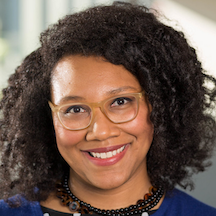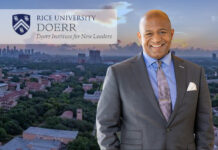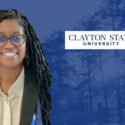 A new study by researchers at Harvard Medical School, the University of Central Arkansas, and Northwestern University, finds that Black medical students attending historically Black medical schools report a greater sense of belonging and greater confidence in their scholastic abilities than those in predominantly White medical schools.
A new study by researchers at Harvard Medical School, the University of Central Arkansas, and Northwestern University, finds that Black medical students attending historically Black medical schools report a greater sense of belonging and greater confidence in their scholastic abilities than those in predominantly White medical schools.
Researchers surveyed a large group of Black medical students three times during their second year of medical school. In addition to finding a greater sense of belonging, the study found that HBCU students reported more confidence about being accepted into a top 10 residency program.
 “Our findings suggest that Black medical students in PWI schools may experience greater everyday discrimination relative to their HBCU peers that leads to reduced perceptions of their ability to succeed within medical school,” said Sylvia Perry, an associate professor of psychology at Weinberg College of Arts and Sciences at Northwestern University, and the study’s senior researcher.
“Our findings suggest that Black medical students in PWI schools may experience greater everyday discrimination relative to their HBCU peers that leads to reduced perceptions of their ability to succeed within medical school,” said Sylvia Perry, an associate professor of psychology at Weinberg College of Arts and Sciences at Northwestern University, and the study’s senior researcher.
“We believe that it is important for predominantly White institutions to signal a commitment and make efforts to increase diversity among trainees and faculty,” Dr. Perry said. “Simply increasing the number of students and faculty of color is not enough. These institutions should also focus on increasing underrepresented medical students’ sense of belonging by making the reduction of bias and discrimination explicit priorities. Medical schools must create an environment in which all students can thrive and feel safe.”
A native of Raleigh, North Carolina, Dr. Perry completed a bachelor’s degree in psychology at the University of North Texas in Denton. She earned a master’s degree and a doctorate in social psychology from the University of Illinois at Chicago.
The full study, “Black Medical Students’ Sense of Belonging and Confidence in Scholastic Abilities at Historically Black vs Predominantly White Medical Schools: a Prospective Study,” was published on the website of the Journal of General Internal Medicine. It may be accessed here.










No need for this study politically correct study. Native born Black American students perform better across the spectrum at HBCU medical schools because they don’t have to deal with institutional and structural racism academically, administratively, and collegially. Further, at the HWCUs medical schools, native born Black American medical students have to deal with their White, Asian, and Latino daily racial proclivities which impact their medical intellectual development. Besides, this is not new to those HWCUs medical school based upon their historical and current mistreatment of native born Black American medical students.
I would think this would be the case for levels of education. Is it not?
Let’s not forget stereotype threat and how that impacts the psyche of black medical student at PWI medical schools.